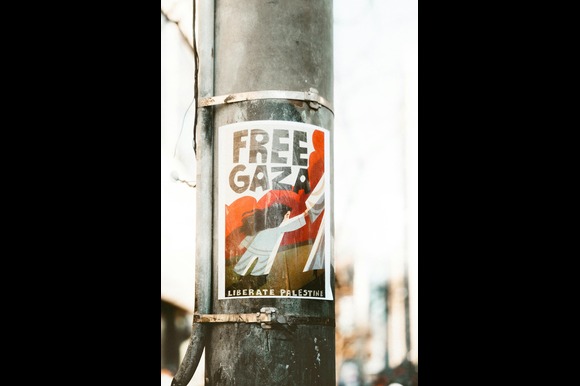Spain’s foreign minister has called on the international community to consider imposing sanctions on Israel in an urgent effort to halt its ongoing war in Gaza. The call came during a high-level diplomatic meeting in Madrid on Sunday, where European and Arab countries gathered to address the worsening humanitarian crisis in the besieged Palestinian enclave.
Speaking ahead of the fifth official meeting of what is known as “The Madrid Group,” Spanish Foreign Minister Jose Manuel Albares appealed for an end to Israel’s relentless military offensive and the humanitarian blockade that has drastically exacerbated suffering among civilians in Gaza.
The conflict, triggered by the Hamas-led attack on October 7, 2023, has led to massive destruction and starvation, with daily reports of rising Palestinian casualties. The humanitarian crisis has worsened dramatically due to a near-total blockade on aid, with the United Nations describing the limited supplies permitted by Israel as “a drop in the ocean.”
Countries once seen as firm allies of Israel within the European Union are now joining the growing chorus of international condemnation. As the war rages on, Spain hosted over 20 nations and major international organizations on Sunday in a bid to chart a path toward ending the violence and allowing vital humanitarian assistance to flow freely into Gaza.
Albares stressed the urgency of the moment, describing it as a “humanitarian catastrophe” and stating, “We aim to stop this war and break the blockade of humanitarian assistance that must go in unimpeded.”
Palestinian Authority Prime Minister Mohammad Mustafa expressed hope that mounting international pressure would compel Israel to end what he described as “famine” and “genocide” in Gaza. He noted that “many countries around the world clearly disapprove” of Israel’s conduct in the war.
Egypt’s Foreign Minister Badr Abdel Atty echoed this sentiment, attributing the ongoing conflict to a “lack of political will from the Israeli side” to cease hostilities. “This is the main problem,” Abdel Atty said, while reaffirming Egypt’s commitment to pressing for a ceasefire and sustaining diplomatic engagement.
During the talks, Albares emphasized the need to take bold measures, saying, “We must consider sanctions, we must do everything, consider everything to stop this war.” His remarks come just days after the European Union announced it would review its cooperation agreement with Israel.
Germany’s Deputy Foreign Minister Florian Hahn also raised alarm about the deteriorating conditions in Gaza, which he described as “unbearable.” He called for an immediate ceasefire and emphasized that resolving the crisis and facilitating a political solution remain top priorities for Germany’s foreign policy.
Sunday’s meeting is also seen as laying the groundwork for a significant UN conference on the two-state solution, scheduled for June 17 in New York. That conference, co-hosted by France and Saudi Arabia, aims to galvanize international support for the recognition of an independent Palestinian state.
“We want to create momentum,” Albares said, underlining the importance of the upcoming conference. “That conference in New York must be a big moment to push towards recognition of the state of Palestine.”
Last year’s Madrid summit included participation from Egypt, Jordan, Qatar, Saudi Arabia, Turkiye, and several European nations such as Norway and Ireland, which have already recognized a Palestinian state.
This latest round of discussions also involves the Arab League and the Organisation of Islamic Cooperation. Delegates are working to promote the two-state solution as a viable path to resolving the long-standing Israeli-Palestinian conflict.
Al Jazeera’s Hashem Ahelbarra, reporting from Madrid, called the talks “crucial,” noting that participants are hoping to pave the way for future political negotiations that would bring Israelis and Palestinians together to end the war and establish a Palestinian state.
According to Gaza’s Health Ministry, nearly 54,000 people—mostly women and children—have been killed since the beginning of Israel’s offensive, further underscoring the urgency for international action to halt the bloodshed.






